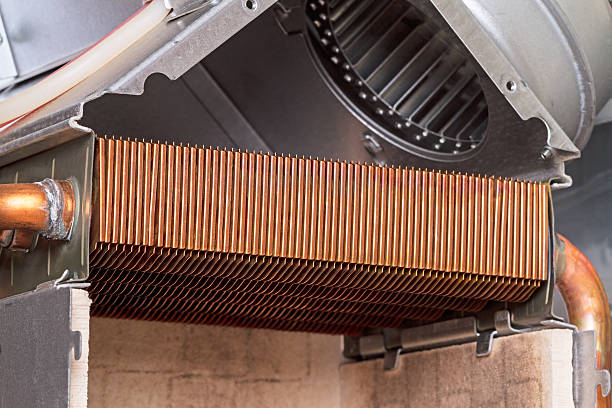A heat exchanger is a framework used to move heat between at least two liquids. Heat exchangers are utilized in both cooling and warming processes. The liquids might be isolated by a strong divider to forestall blending or they might be in direct contact. They are generally utilized in space warming, refrigeration, cooling, power stations, synthetic plants, petrochemical plants, oil treatment facilities, flammable gas handling, and sewage treatment. The exemplary case of a heat exchanger is found in an inside burning motor in which a circling liquid known as motor coolant moves through radiator loops and wind currents past the curls, which cools the coolant and warms the approaching air. Another model is the warmth sink, which is an inactive heat exchanger that moves the warmth produced by an electronic or a mechanical gadget to a liquid medium, frequently air or a fluid coolant.
Sorts of Heat Exchangers
- Shell and cylinder heat exchangers
- Twofold line heat exchangers
- Plate heat exchangers
- Condensers, evaporators, and boilers
Littler Spatial Impression
With the headway of present day innovation, it appears to be that all the more impressive additionally implies littler; littler individual gadgets, littler and more adaptable assembling gear, and that’s only the tip of the iceberg. The contracting space in electrical cupboards raises the dangers of warmth pockets and coming about harm to electrical parts, which builds the requirement for littler and more effective cooling arrangements, for example, heat exchangers.
Lower Ecological Effect
To be compelling, heat exchangers must run persistently to guarantee that powerful control boards don’t overheat. Probably the best advantage of present day heat exchangers is that they don’t depend on extra hardware, for example, a cooling or air compacting unit, to work. Along these lines, they utilize altogether less vitality and produce practically zero contamination contrasted with more traditional cooling strategies. The main benefit of the air cooler heat exchanger is the elimination of an auxiliary water supply (water lost due to evaporation and drift) making it a “greener” option compared to other heat exchanger types. It also represents lower capital, operational and maintenance costs.
Negligible Working Expenses
Since heat exchangers don’t utilize muddled outer hardware, and in light of the fact that they are intended to dispense with most sullying, they don’t should be kept up as frequently as climate control systems. They additionally don’t separate and can keep going for a few times longer than most cooling units before requiring fix or substitution.
